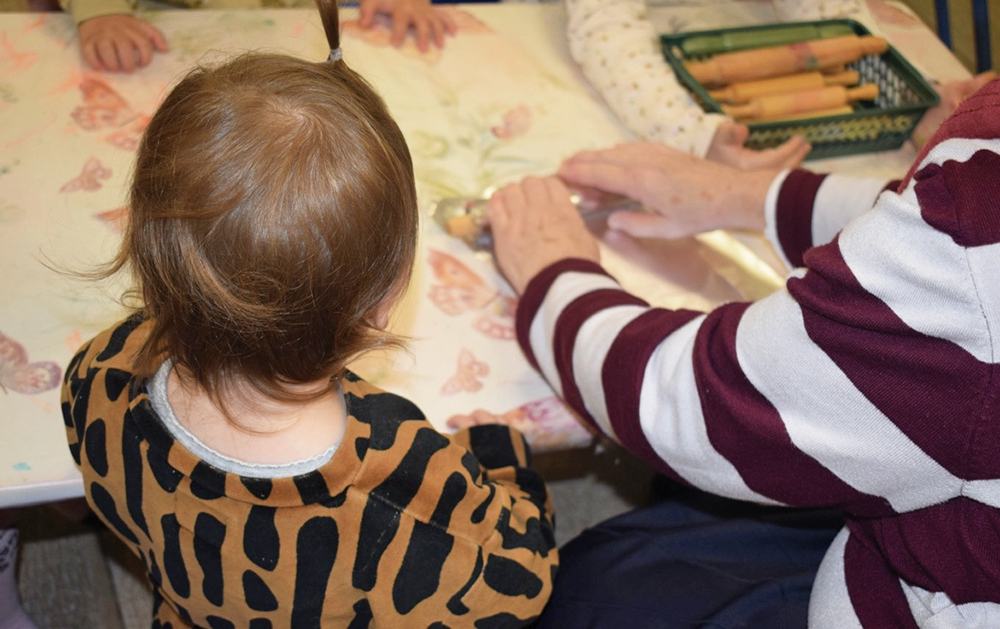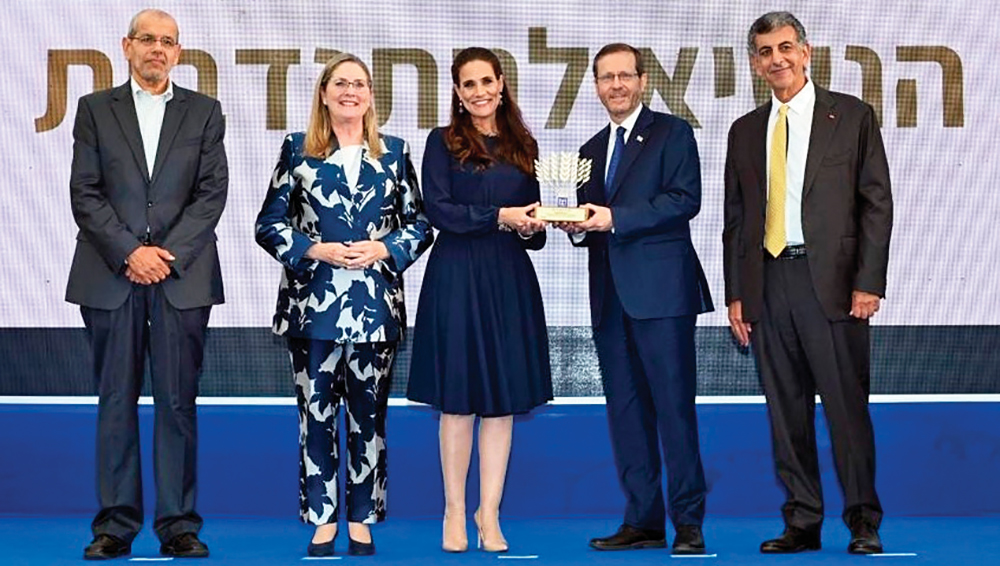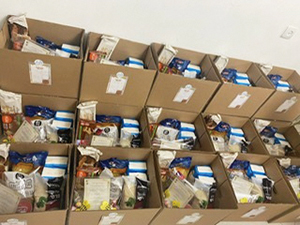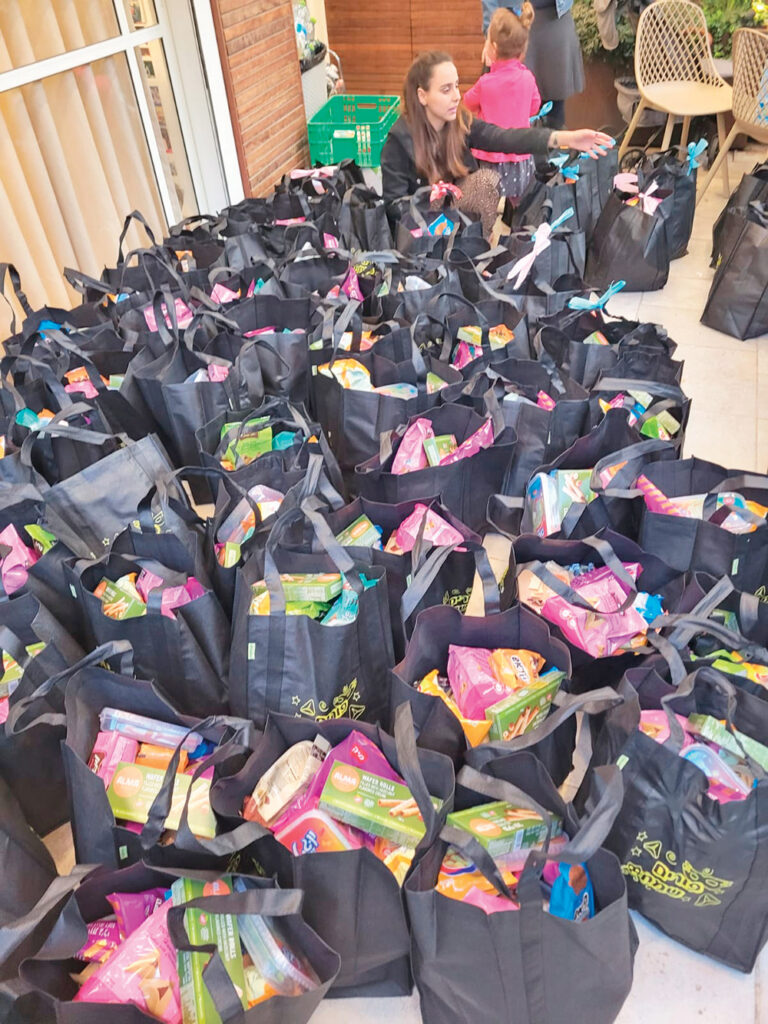
Thirty years ago, on a cold and rainy day in Israel, Noach Korman decided to dedicate his career to helping religious women escape bad marriages.
Korman was a young divorce lawyer, working in Jerusalem, when a woman, pushing a stroller with a plastic rain shield over it, entered his office, soaking wet. She asked if he could represent her in her divorce. After giving her a seat and helping her settle in, Korman asked: “Where do you live?” She answered: “I don’t have an address.”
The young woman explained that she had been married for three years. Already as newlyweds, her husband began physically abusing her. She tried to leave and get help from her family, but they told her to go back to him. They felt that she was with her husband now and had to remain committed to him. The week before she came to Korman’s office, her husband had beat her so badly that he almost killed her. At that point, she ran away with her baby and decided never to go back. She had no place to go, so she spent her days walking the streets. At night, a hotel manager allowed her to sleep with her baby on one of the sofas in the back of the lobby. Korman asked: “What do you do when it rains?” The woman replied: “I go into a store and wait until it stops.”

This young woman had tried to get help from social service agencies, but the shelter that existed at the time (1994) was not religious. The food wasn’t kosher, and the women there were mostly Arabs and foreigners. She felt she couldn’t stay there.
Korman was shocked by her story. He told her that before they dealt with her legal issues, he would find her a place to stay for a while. Google didn’t exist yet, so he started to call various charitable organizations in Jerusalem. Each group sent him to another one, saying they were sorry that they couldn’t help. Four hours passed as Korman kept making calls, while the young woman sat in his office.
Finally, towards the end of the day, a rebbetzin called him back, saying that she knew of an elderly woman who needed someone to live with her. So Korman brought the young woman and her baby to live with this elderly lady for the time being.
He felt shaken to the core. He had grown up in Teveria and was blessed with wonderful parents and a strong family. “My first feeling of shock was seeing a situation of domestic violence in the Orthodox community,” Korman said. “My second feeling of shock was: How is there nobody to help this woman?”
The young lawyer began speaking with rabbinical judges in beit dins, asking them if they knew about this problem. They said they were aware of it, and didn’t know why there wasn’t more help for the women, but encouraged him to create support for them.

Not knowing where to turn, Korman contacted a nonreligious women’s shelter that existed at the time, called Isha l’isha (Woman to Woman). The shelter staff were happy to help him, and they formed a committee to create a plan for religious women suffering from domestic violence. They asked the Jerusalem municipality and the welfare ministry to participate. Both government agencies agreed, but they were limited because they were not familiar with the religious communities. The welfare ministry told Korman that if he could provide 50% of the budget necessary to open a religious women’s shelter, the city would provide the other half of the funds.
“But I had nothing,” said Korman. “I was 24 years old. I brought my plan to various organizations and potential funders, explaining that the government would fund half of the budget, but they preferred not to touch it. In those days, people didn’t want to hear what was happening in their neighbor’s house. They preferred to sweep it under the rug.”
Korman recalled that when his committee met with Rabbi Eliyahu Bakshi Doron, zt”l, the Sephardic Chief Rabbi at the time, he was very encouraging. While he couldn’t provide the funds, he blessed them, and helped in other ways to create an official organization. Korman named the organization Bat Melech (Daughter of the King).

“One day a miracle happened,” Korman said. A woman who was visiting Jerusalem from New York decided to help him. She had four ultra-Orthodox daughters. Even though their marriages were happy, she understood the need. She fundraised in New York and provided significant capital. Between the funds she brought and the Israeli government’s funds, Korman could open one apartment at first, and eventually another three.
In January 2000, Korman and his staff decided to close all four apartments in order to open a real shelter in Jerusalem. The problem was that it filled up immediately. Five years later, they had enough funds to open a second shelter in Beit Shemesh. Major funding was still being provided from the woman in New York and the Israeli government.
Eventually, Bat Melech began receiving more funds from people in the religious communities in Israel, who made it part of their charitable giving.
“When women escape abusive marriages,” Korman explained, “they need to rehabilitate themselves and their children to escape the cycle of violence. Domestic violence can become generational, and families can get stuck in it.” The shelters of Bat Melech provide counseling for women and their children.
The average time that the women spend in the shelters is six months (although they are allowed to stay longer if they need the time). In the shelters, the women stay together with their kids in a private unit with their own bathroom and small kitchen. However, the shelters also house a large communal kitchen and dining room where the women take turns cooking for all the residents every day. While in the shelters, their needs are taken care of. The kids can go to school and visit their fathers if the court allows. The mother has a restful and quiet place to make serious decisions by herself, without threats or external pressure. She can decide if she wants to get divorced, and if so, how to proceed, where to live and how to get a job.
Korman explained that the abuse the women have suffered is not only physical—often the emotional abuse is worse. “They feel they don’t exist anymore. They have no self-esteem.”
Korman relayed a story of a particular woman, who, once settled into the shelter, was told by the em bayit (the house mother) that the residents took turns cooking every day. The newcomer apologetically responded that she wouldn’t be able to take her turn because she doesn’t know how to cook. The house mother said that she would help. She was amazed when she saw that not only was this new resident fully able to cook, but her skills were professional level. Her dishes were exquisite, tasty and beautifully presented. When everyone exclaimed over her meals, the new resident was stunned. Her husband had always berated her about her cooking and told her that her food was inedible. Several months after she moved into the shelter, she was selling her homemade, professional-quality birthday cakes around the area.
Many women come to the shelters having not received higher education and not having held a job. Often, their husbands wouldn’t allow them to work outside the home, and some even locked their wives in the house every day. Bat Melech assists them to get scholarships and stipends to study in university. Many women leave the shelters on their way to pursuing degrees, with enough finances to live on their own as they study. “It’s an amazing feeling for them because when they came to us, they felt completely helpless,” said Korman.
Bat Melech has a hotline for women to call to discuss their situations. Since many of the callers are Americans, the hotline always has Anglo social workers available to speak to them.
Currently Bat Melech provides counseling for both legal and emotional support for the women and their children. Korman explained that this service is similar to the Shalom task force in New York, with whom they have collaborated. Bat Melech employs three lawyers to represent the women in their divorces. When men are resistant to divorce, the lawyers are adept at fighting back, and obtaining gets from the husbands. Sometimes they are successful quickly, and sometimes it takes years.

In order to educate and raise awareness regarding the issues of domestic abuse, Bat Melech sends representatives to speak in various communities. They bring rabbis and rebbetzins to the shelters and give them tours. Bat Melech is now working on a new project to provide online classes for religious brides and grooms.
But the main service is providing the three shelters: one in Jerusalem, one in Beit Shemesh and another in a yishuv near Petach Tikvah. These shelters are specifically for religious women from anywhere in the country. In addition, Bat Melech now has six separate apartments for women with teenage boys because teenage boys aren’t supposed to live in women’s shelters. (This is universal, not religious.)
Israel currently has 17 shelters altogether: Three are specifically for Arab women, three for religious Jewish women, and the others are for the rest of the population.
When asked about the impact of the war on Bat Melech, Korman said that the organization is low in funds.
“Thank God we have been very successful,” Korman said. “Our organization has saved more than 2,000 women and thousands of children.
“This is our success—to see hundreds of women who become independent, who save their own lives and the lives of their children from cycles of violence. It is wonderful to see them smile again.”
For more information, visit: www.batmelech.org
To donate: https://www.batmelech.org/donation/?lang=en
Dassi Lewis is a staff writer at The Jewish Link.









